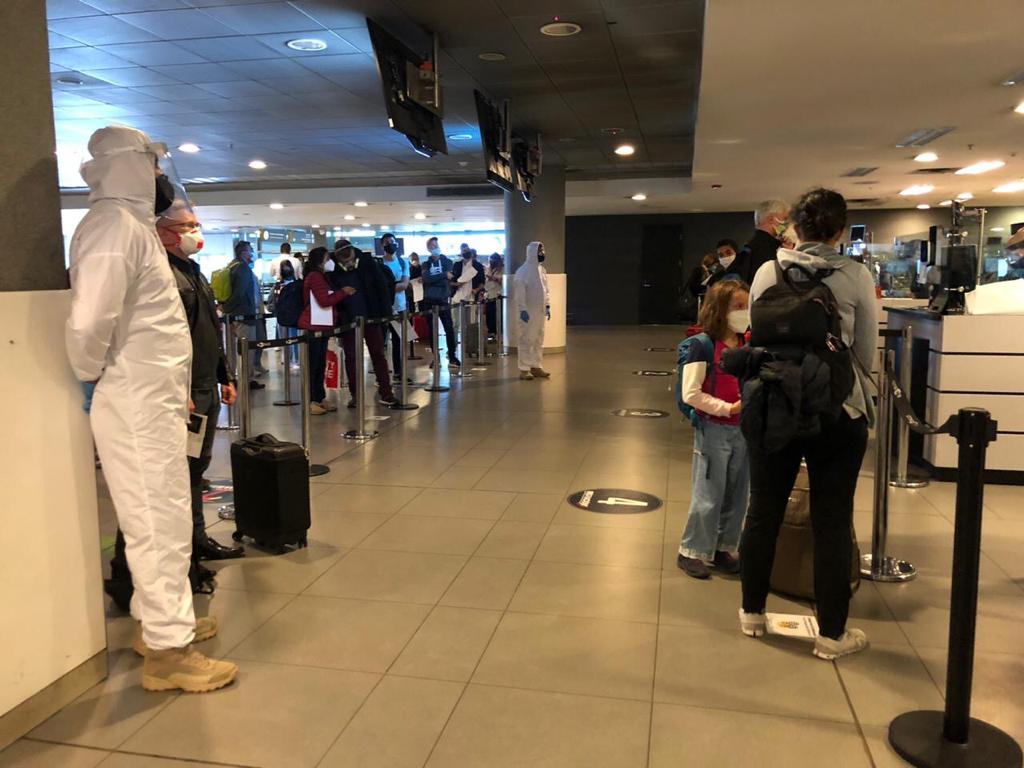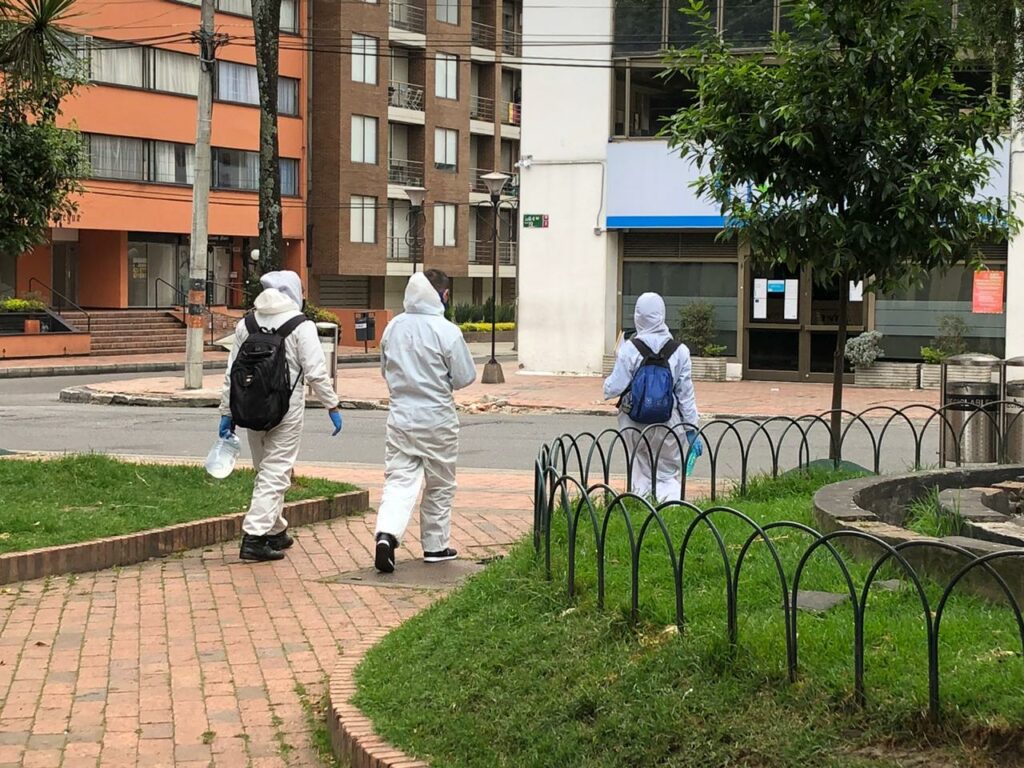As Bogotá enters a ‘New Reality’, here’s what the new ‘new normal’ might look like.

Colombian authorities have announced what amounts to a shift change in coronavirus measures. Some parts of Bogotá that thought they’d be in strict quarantine until the end of the month will instead have restrictions lifted at midnight tonight. Moreover, come September, restaurants can open (with restrictions), intercity transport will be allowed and we’ll even see domestic flights.
As with many of the new measures, some rules feel as if they change as fast as they are announced. And of course, it remains to be seen which rules are actually enforced. So bear with us, but here’s what we know right now.
Look after yourself
Bogotá mayor Claudia Lopéz is talking about a “New Reality” and President Duque sees it as selective isolation, but both are singing from the same hymn sheet on this one. The new phase of coronavirus measures is all about self-care and self-protection. Don’t go out if you have any coronavirus symptoms. Wear masks, maintain distance, and wash your hands.
The sanitary emergency will be in place until at least November 30, but from September we will have fewer restrictions on normal life.
The four by four model: Monday to Thursday, Thursday to Sunday
Here’s where it starts to get murky. Bogotá’s ‘New Reality’ as explained by mayor López involves a four-days-on, four-days-off timetable. The idea is to reduce the number of people who are out and about — and reduce the number of people using public transport by allowing sectors to follow four-day weeks.
Read our latest coverage on the coronavirus in Colombia
There aren’t eight days in the week, which is why certain activities will overlap on a Thursday. And following some successful lobbying from other groups, there are a few other exceptions.
Here’s the plan:
- Monday to Thursday: The first four days are all about production. Manufacturing, wholesale and activities that don’t involve customer contact
- Wednesday to Sunday: Shopping for non-essential goods and hairdressers get in early. Big chain stores can open every day as long as half their products are considered essential goods.
- Thursday to Sunday: Restaurants will be able to operate for this four-day weekend (more on that shortly). We’ll also see parks, ciclovía, and other outdoor activities opening up. Gyms will be allowed to operate outdoor activities, though it’s not clear what days this will happen.
- Every day: Essential activities, such as the production and transport of food and medicine. Construction (one of the first sectors to return to work) can operate from Monday to Saturday after 10 am. Offices and professional services can operate every day apart from Thursday, providing 70% of staff continue to telework.
The essential activities are much the same as we’ve seen for a lot of the lockdown, but the list does seem to have been expanded. Launderettes, for example, have now made it onto the everyday essentials list.
Before you get too excited, pico y cédula will still be in operation in grocery stores, shopping centres and notaries. So you’ll still have to restrict your essential everyday activities to every other day.
Restaurants, bars and clubs
Bars and clubs will remain shut and on-license alcohol sales are not allowed in public venues until December 31. This is one of the areas where the rules seem contradictory. Mayors can request permission for alcohol sales in certain venues. And in Bogotá it looks like bars that serve food will be able to open and serve alcohol — but only until 9pm. So the new reality may herald a new wave of gastropubs in the country. That or a lot of prominent empanada sales.
Restaurants can open indoors at 25% of their normal capacity. And, starting on September 3, we’ll see the start of the city’s Cielo Abierto plan. From Thursday to Sunday every week until the end of December the city’s restaurants will be able to operate in the open air. This can be on patios and extensions, in outside spaces and streets constructed for this purpose or plazas. It may also take the form of drive-throughs and food trucks.
Smoking Molly boss Santiago Zuluaga told us that restaurant owners — almost all of whom have faced severe losses over the past five months — are hopeful but worried about the new measures. “We’re worrying a little bit because we see that it’s not really organised and it’s only really a 25% increase in the capacity in the restaurants and it’s only Thursday through Sunday,” he said. “It’s understandable and it’s not a good idea to just open everything. But I don’t think there’s going to be a major difference.”

Clubs, along with swimming pools, theatres, cinemas and casinos will not be able to open in the New Reality. Churches were originally on the banned list, but concessions were made to allow pilot projects in which families can attend religious ceremonies from their cars.
Schools and universities
While educational establishments such as pre-schools, schools and universities can open for four days a week, the Ministry of Education has said this will be a very gradual process which will only begin in October.
It will start with pilot projects with limited numbers of students in classrooms. And each school will need to request a reopening date.
Transport and flights
Domestic flights will reopen from September 1, with 14 routes. El Dorado will run at 12% of its normal capacity and the hope is to gradually open more flights. The country’s roads will be open and intermunicipal travel will be allowed.
In Bogotá, TransMilenio operations are going to have to expand a little to accommodate the increase in passenger numbers. Previously, they could run at 35% capacity, that’s now been increased to 50%.
Windows on all public transport must be kept open, masks must be worn and passengers are not allowed to talk on the phone. Hard to see that last one being followed.
Leaving the country
Consular services will open for Colombians, especially those due to study abroad, and are included on the list of everyday activities. Colombia’s borders will stay closed until October 1, but humanitarian flights will continue to operate.
In summary: Bogotá’s New Reality
- No more strict quarantine by sector
- Pico y cédula will stay
- Restaurants can open in a limited capacity from September 3
- Domestic flights will operate from September 1
Before you get too excited, remember all of this is conditional on public health — the whole idea of selective isolation is that if cases rise, those areas may be closed down again.





